The Changing Face of European Motorhome Touring
We’ve all witnessed a fair few changes to the world of European motorhome touring over the past decade or so. This post is my personal take on the biggest shifts. I’d love to hear your thoughts on how motorhome and camper travel has changed for you – please drop a comment at the end of the post – we (and others) read them all.
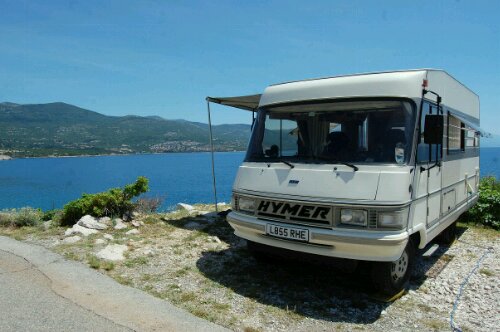
Change 1: Brexit
Sigh. I’d love to skip over this one, divisive subject that it is, but sadly I can’t. Brexit was probably the #1 biggest set of changes we’ve seen.
Before it was complete (and even after for a while), none of us knew quite what impact the UK leaving the EU would have on motorhome travel. Now the dust has settled, the biggest changes have arguably been for Brits heading to the EU with pets and those of us travelling for relatively long periods, more than 90 days in the Schengen Area (most of Europe) in a rolling 180 days.
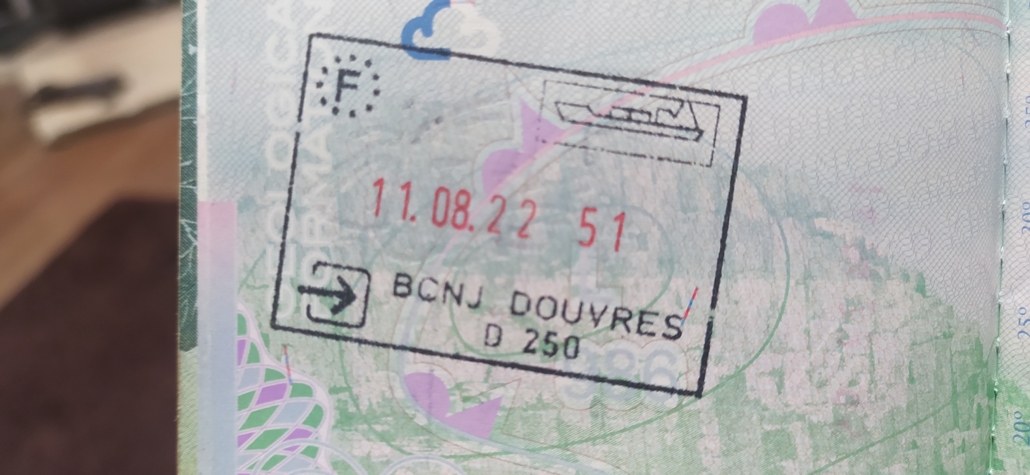
If you’ve a pet, travel to the EU is still possible without worrying about quarantine when you come back to Blighty. It’s become more expensive and less convenient though, especially if you’ve multiple pets or if you take frequent trips. Although Northern Ireland has retained the EU Pet Passport, Britain hasn’t. Those of us in England, Scotland and Wales now need to head to the vets for an Animal Health Certificate (AHC) each time we head to the EU. Dog owners also need to visit a vet abroad for a worming treatment before coming back to the UK, but that was the same with the Pet Passport scheme.
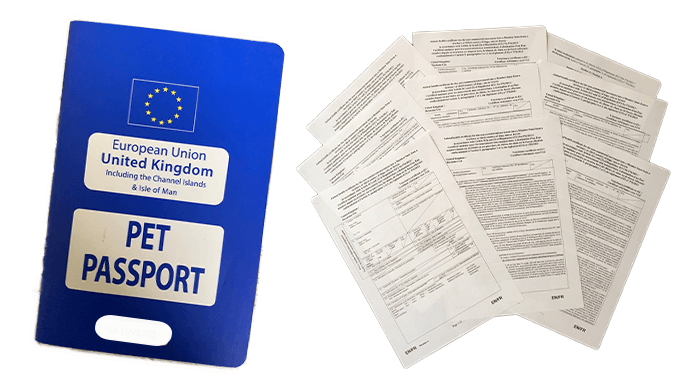
The 90-in-180 rule has had the most impact on long-termers and frequent travellers. If you fancy taking six months or a year out to tour Europe, it’s still do-able, but it’s not as easy as it was pre-Brexit. You’ll either need to apply for a national visa (in France say), and/or use ‘waiting countries’ which are outside of the Schengen Area, like the UK, Ireland, Turkey, Bulgaria, Romania and Morocco.
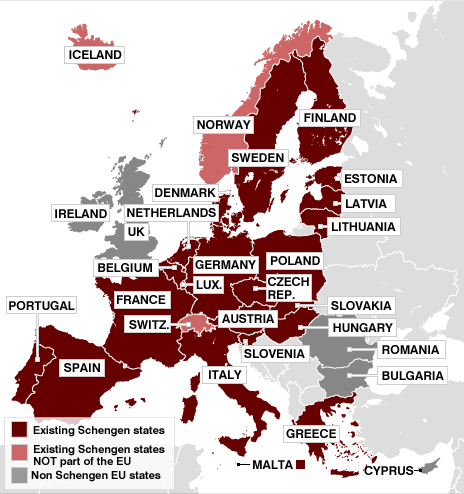
Pet owners and long-termers aside, everyone travelling abroad was impacted in smaller ways by Brexit. For example, many UK mobile phone operators started to impose tighter caps on the data we could use abroad. Some started to charge us for each day we’re in the EU. Also, we’re no longer able to (legally) take meat, dairy or most vegetables/plants into the EU (including pet food). At peak times we’ve seen some hefty queues at Dover, arguably not helped by the fact all our passports now need to be stamped as we enter the EU. When the EES (the electonic version of the stamps) comes into force (scheduled for May 2023), we might well see even longer queues before the scheme settles in.
Mind you, other stuff we worried about didn’t happen. We can still get insurance for long trips outside the UK. The EHIC has been replaced with the GHIC (although the GHIC doesn’t cover Norway, Iceland and Liechtenstein). And we don’t need International Drivers Permits (IDPs) to drive in EU countries. The ‘GB’ sticker and number plate symbol on the back of our vans has changed to ‘UK’ ones, but as far as I can tell that wasn’t a Brexit law change.
Lastly, the UK’s exit from the EU led to some streaming services like Sky and Netflix no longer being accessible outside the UK. If you’re using a UK SIM card, the services might continue to work. If they don’t work you’ll need to use a VPN to make it look like you’re in the UK, with the associated monthly fee.
Change 2: COVID-19 Lockdowns
The other big one! COVID-19 lockdowns repeatedly forced motorhomes off the road completely. At the very start, those living in their vans full-time were under huge pressure to find a safe haven. Some rented houses, many managed to find campsites or aires to wait it out, confined to their pitch for months.
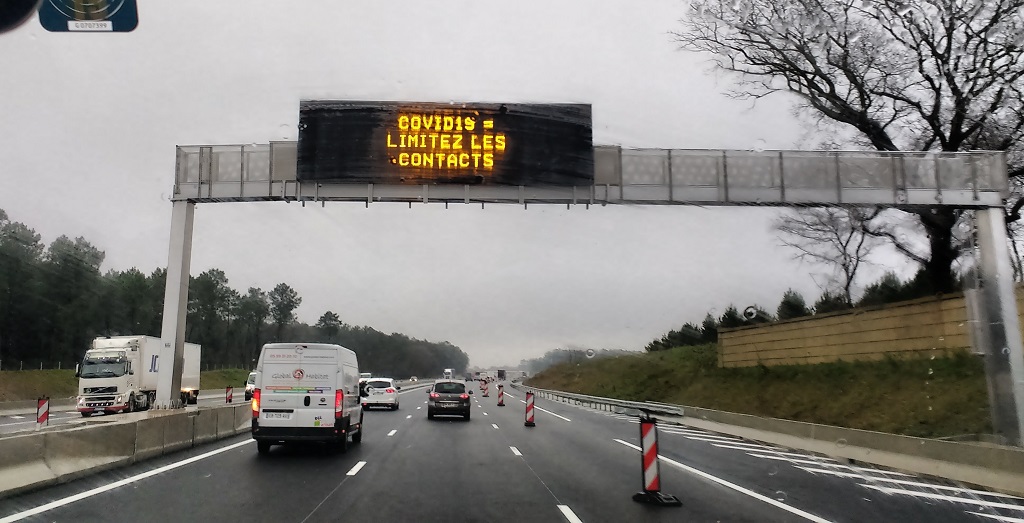
The lockdown concept seems fairly normal now, but when it first happened it felt a huge, incredibly stark contrast with the bonkers level of freedom motorhomes usually offer. Even outside the times we were all effectively locked-in, UK campsites had to close their toilet blocks, enforce larger gaps between pitches, refuse access to visitors or introduce contactless entry systems.
Of course, this all pales into insignificance compared with the suffering of those directly impacted by the disease, or the associated social, mental health and financial fallout of lockdowns.
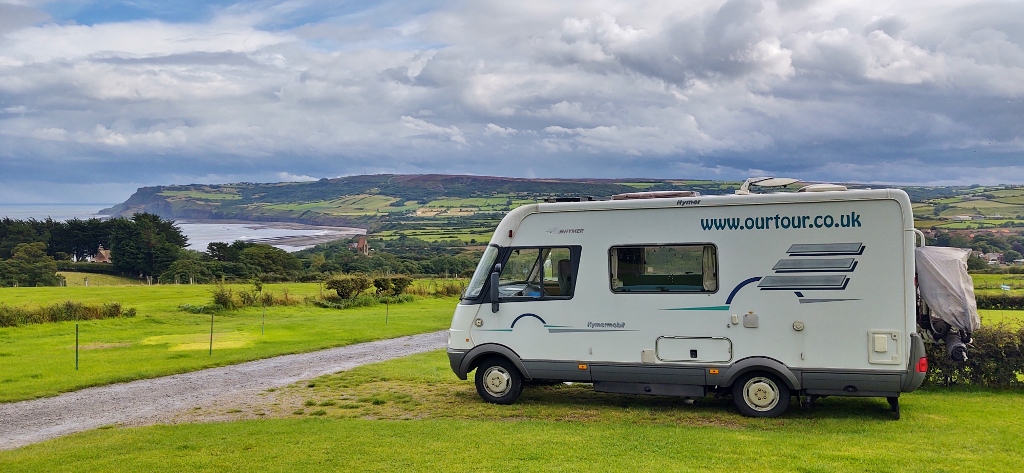
Thankfully, all restrictions on travel and campsites have been removed in the UK. The same goes across Europe, almost all COVID-19 related restrictions have now lifted and (fingers tightly crossed) won’t be re-introduced. Throughout the pandemic motorhome travel felt very safe to us, espeically compared with flying. It still does, as we’re able to control the amount of contact we have with others, and carry our own facilities on board.
Change 3: Much Improved Phone & Internet
Here’s one where there’s been a huge improvement over the years.
When we first set out in Oct 2011, we had a ‘Data Traveler’ SIM which gave us a huge 25MB (not GB) a day in the EU. It wasn’t enough to upload photos to this blog. We’d write a post in text, upload it, and later add pre-shrunk photos when we could find WiFi. There were no smartphone apps for finding places to stay, checking driving routes or traffic or looking for cheap fuel. Streaming TV over the internet in your van wasn’t a thing, unless you could find a WiFi network fast enough (not likely) or fancied coughing up £3,000 for a satellite internet system, and another £800 a year for the data.
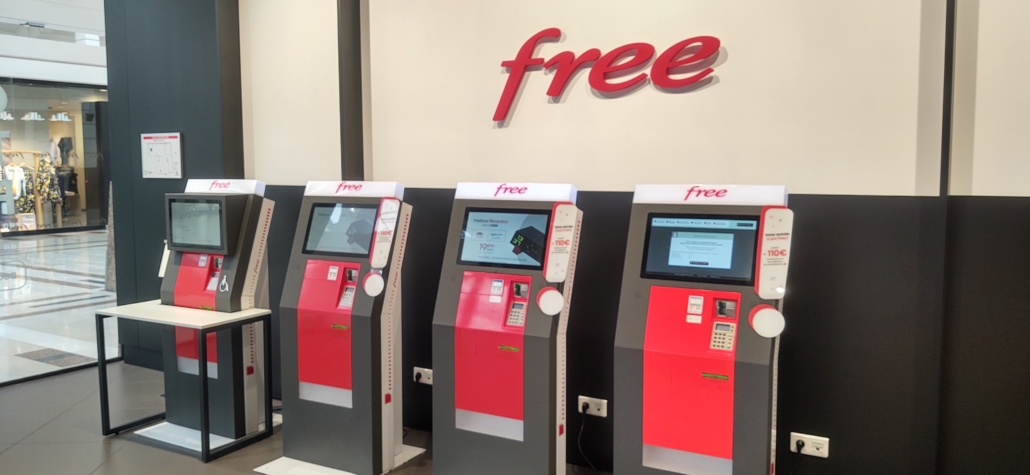
Fast forward to now and we’re spoiled for choice. UK operator Popit Mobile currently offer a £25 SIM which gives you 100GB a month abroad (133 times more than our 25MB a day!), all of which can be used in the EU. Or you could grab a 300GB a month SIM from tiekom.com for €39.90 (about £35). Or buy a Free Mobile SIM in France which gives you 210GB for €19.99 a month (we recently did this). With any of these you can now stream TV in most places for a few hours a day, using an Amazon Fire TV Stick for example if your van’s TV isn’t ‘smart’ (as described here). Pretty cool.
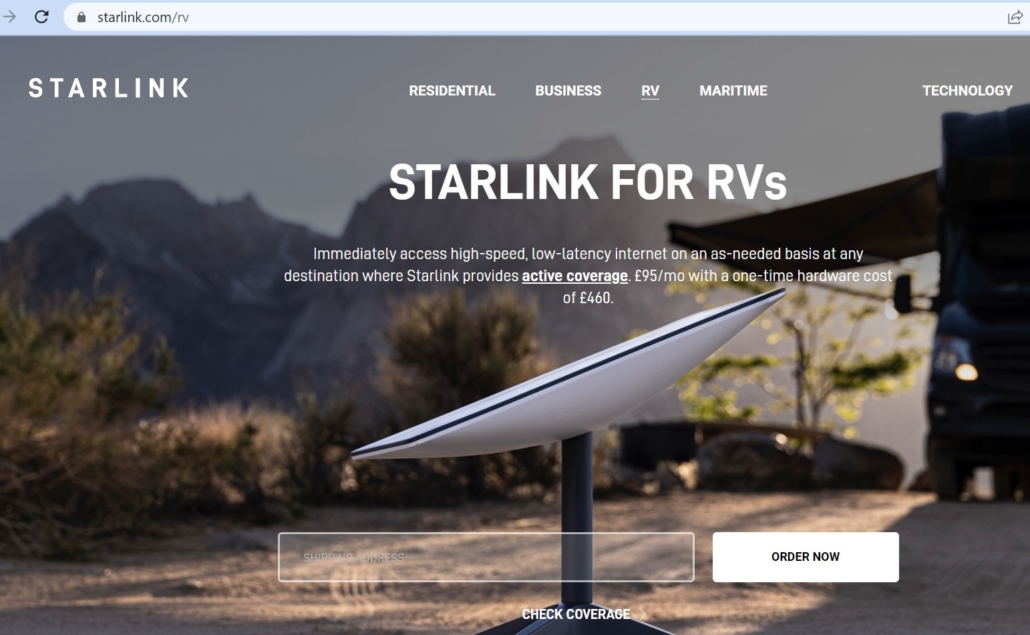
If you’ll be spending times in remoter areas where mobile networks are weaker, or if you need a back-up system (perhaps you work on the road), satellite internet’s come down in price hugely. Starlink RV’s system now costs £460, plus £95 a month for unlimited data. It’s not ideal (it’s not 12V, it isn’t a permanent roof-mounted system and there are no guarantees on bandwidth – more thoughts here), but it’s a thought-provoking option for nomadic workers.
Change 4: Bans on Wild Camping
Since we started visiting Europe around 2009, there’s been a big old increase in the number of motorhomes and campervans on the road. Exactly how many, I’ve not been able to track down, but from the few stats I could find it seems they’ve roughly doubled. And why not? We love being in our van, and we guess others feel the same.
A problem arises when there are too many motorhomes and campers in one place, especially in popular spots like Snowdonia, the Lake District, the NC500 in Scotland, and the coast of southern Spain and Portugal. Even back in 2012 we can recall hundreds of motorhomes gathered together in car parks overwintering for months at a time in the Algarve region. Inevitably some areas have introduced (and to a degree enforced) bans on wild camping, such as Valencia in Spain and all of Portugal.
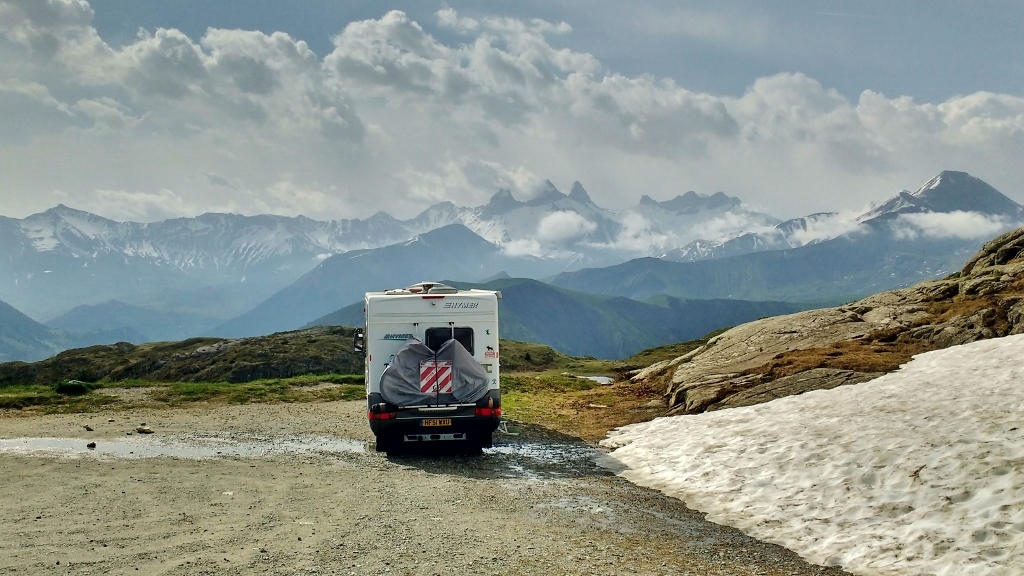
To be fair, wild camping (which we’re defining as sleeping anywhere other than an officially-designated motorhome area) has always been a grey area in much of Europe. Even places like Norway, where the right to roam is enshrined in law, have restrictions on where you can park up and kip. In other countries wild camping is officially banned but often tolerated, or even encouraged by local businesses.
In some cases you might find you can park overnight legally in one town, or even a part of a town, but not in a neighbouring one. Our best advice us to ask around when you’re there, check with the locals and the police if you’re not sure.
Change 5: More Clean Air Zones
When we set out in 2011, we’d never heard of France’s Crit’Air low emission zone (LEZ) scheme. Not surprising, as it wasn’t introduced until 2017. We’d not come across Germany’s Umweltzonen either, although that one had existed since 2008. We soon came across it when we drove into Germany and found ourselves trying to avoid the areas it covers (and occasionally failing, like here in the Black Forest).
Over the past decade, more and more LEZs have been introduced across the UK and Europe. At the same time, increasing number of older vehicles have been prevented from (legally) entering them. They don’t all affect motorhomes, but it makes sense now to be at least aware of these LEZs (there’s a good overview map here). If you plan to tour France and/or Germany, it’s worth applying for the relevant scheme’s windscreen sticker before you head off.
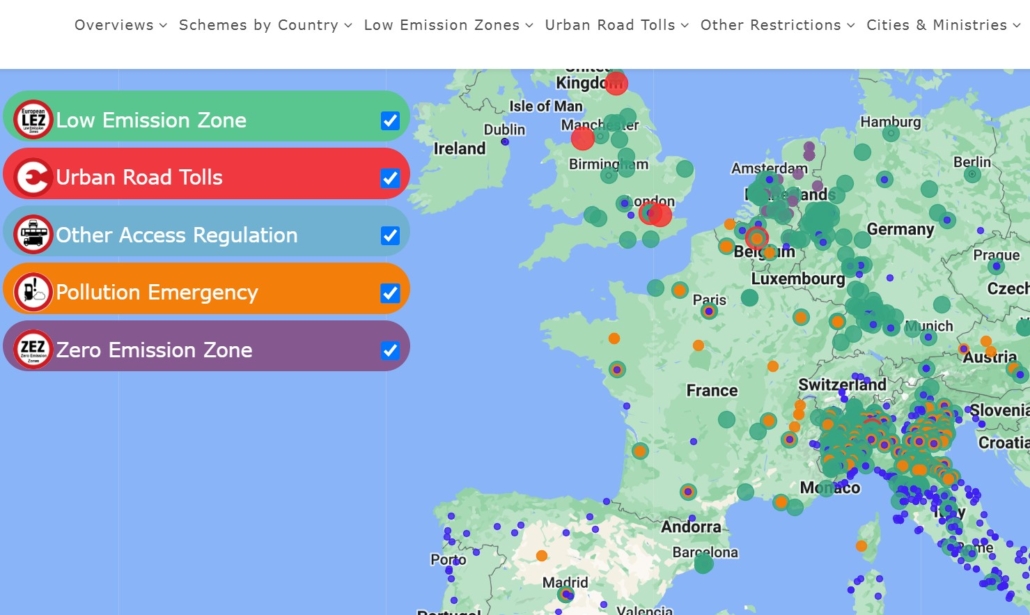
Restrictions are often applied according to the EU Emission Standard of your van. These are the dates each standard came into force, which let you suss out where your van fits (ours was registered in 2001, so is Euro 3).
- Euro 1: January 1993.
- Euro 2: January 1997.
- Euro 3: January 2001.
- Euro 4: January 2006.
- Euro 5: January 2011.
- Euro 6: September 2015.
- Euro 6d-TEMP: September 2019.
- Euro 6d: January 2021.
Change 6: Winter Tyres Becoming Mandatory
Our van currently sports a set of Michelin Agelis Camping tyres. We bought them as (a) they’re designed for motorhomes, so have stronger sidewalls and are less likely to implode and (b) they have the M+S mark on their sidewalls, indicating they’re Mud & Snow tyres. Many countries across Europe require this marking during winter months, so we got them fitted to stay legal. We also bought a set of cheap snow chains, as again some countries require these.
The thing with M+S tyres is this: they don’t have to pass any tests to achieve this marking. That felt fine for us, as we didn’t plan on spending much time in the snow (and no time at all in the mud if we could help it). But once we were actually up there in the mountains, on narrow roads with snow starting to fall, I seriously wished we had better tyres!
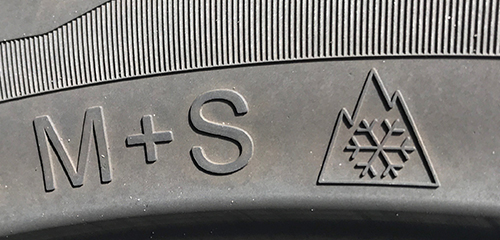
The next ‘step up’ from M+S tyres is ‘full winter’ 3PMSF tyres (three peak mountain snowflake). These have a little symbol of a mountain on the sidewall with a snowflake inside, and they’re tested to rigorous standards. Some are marketed as ‘all year’ tyres, so you don’t have to have a second set of wheels stashed somewhere with summer tyres fitted. They’re not cheap, but both Germany and France have passed laws in the past few years requiring you have them in winter. The exact dates and regions differ between countries, so it makes sense to read up before getting your van ready to travel.
Change 7: Paying for Toll Roads
We’ve always had motorhomes which are 3.5 tonnes or less. That’s worked well for us personally, but if we did want to go over 3.5 tonnes we know we’d have a bit more fun paying for motorway tolls. Over the years, more and more countries have introduced electronic boxes or smartphone apps which track the mileage of these larger vehicles (detailed info here). Czech Republic, Slovakia, Austria, Slovenia, Switzerland, Poland, they’ve all got different systems, great joy!
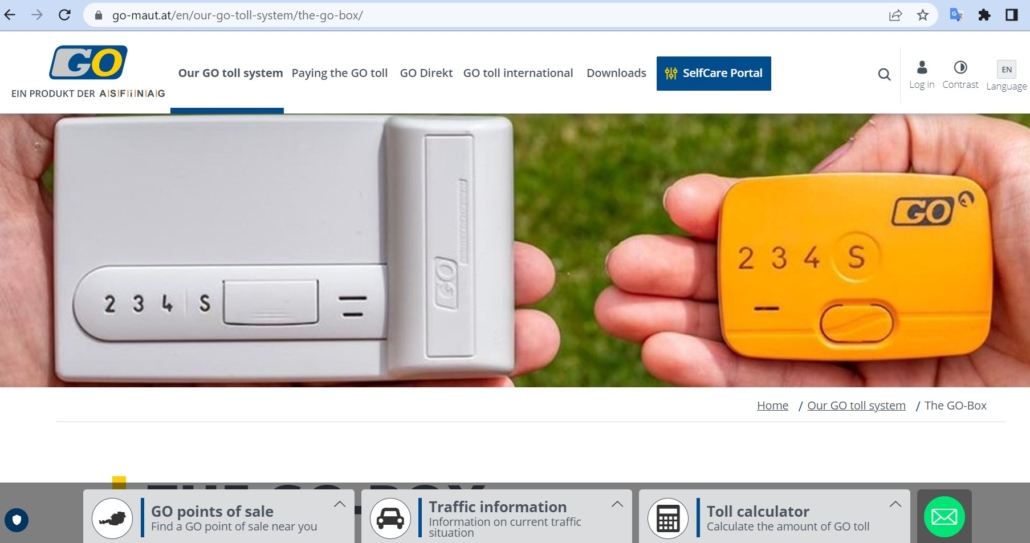
For motorhomes 3,500Kg or less, some countries require a ‘vignette’ to be bought before using their toll roads. These used to be windscreen stickers, but are increasingly becoming electronic records, which you can pay for online. It’s simpler this way. We used to have to head to a petrol station before crossing each border, clutching our V5 and some cash, and hoping the assistant would speak some English and have a clue which sticker to sell us!
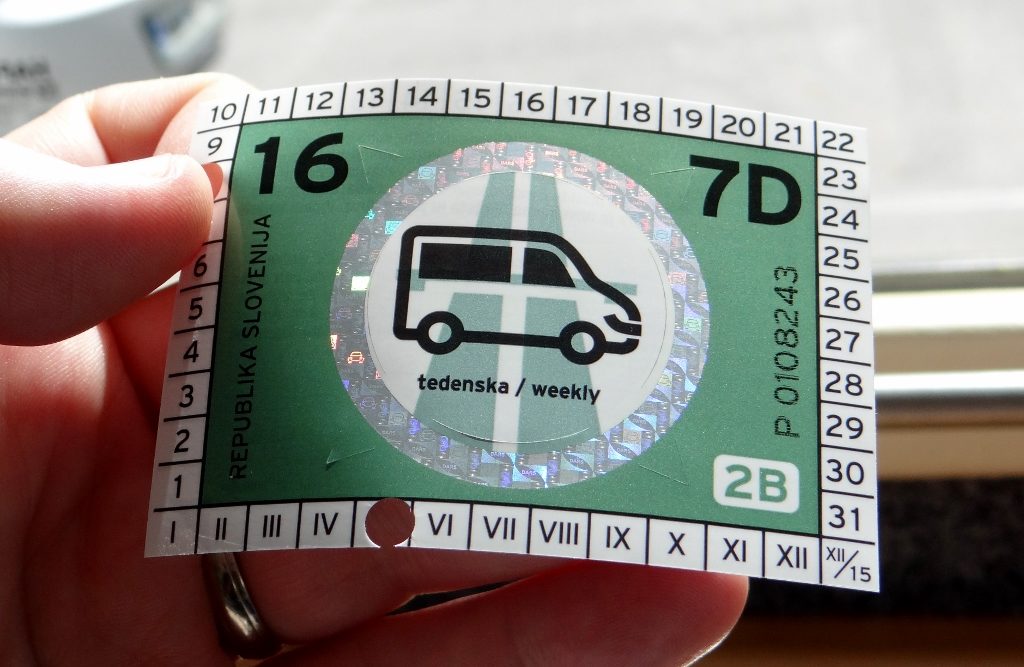
That’s All, Thanks for Reading Folks!
If you’ve enjoyed this post, all this information (with added detail) and much more is included in The Motorhome Touring Handbook (available here as an eBook, paperback and hardback).
We regularly update the handbook, so your copy will have the latest information. Whether you’re thinking of buying your first motorhome, or preparing for an epic year-long tour, we wrote this book for you.
What Are Your Thoughts?
Once again, please add a comment with your thoughts on what changes you’ve seen to motorhome or campervan touring over the years in the box below.
Cheers, Jay

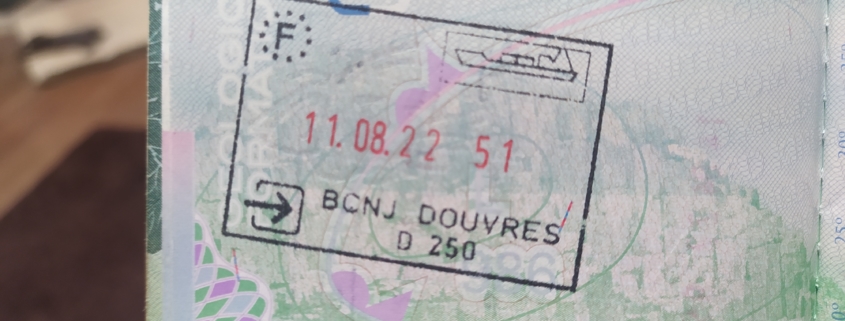
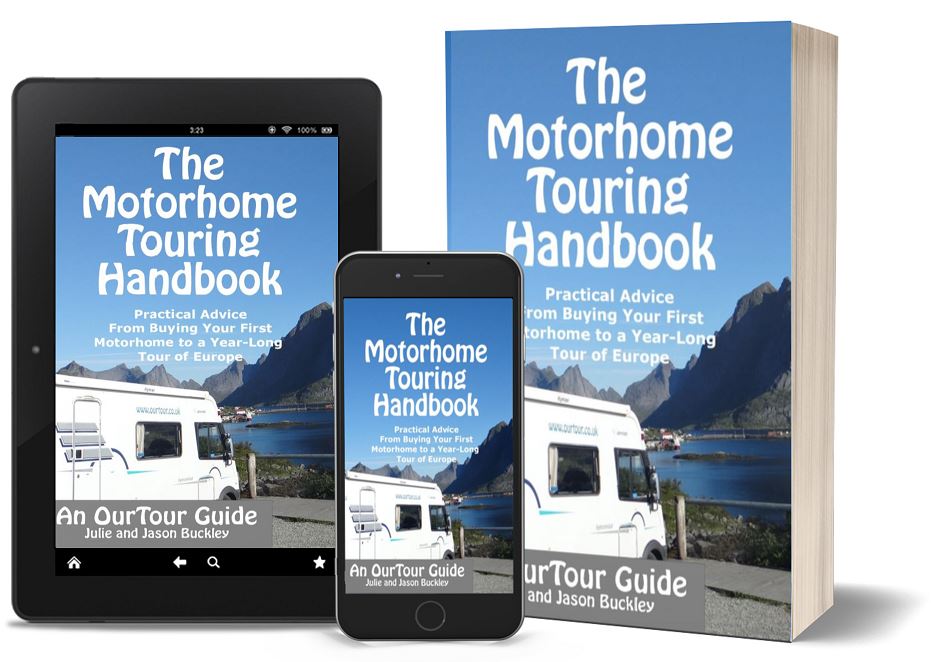
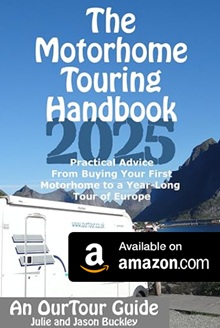


Fantastic blog as usual and useful information. Thank you!
Cheers Dominic, happy travels, Jay
We have noticed a change to the Aire system in France, lots of them being run by Camping Car Parks. We like them and their App. Usually much improved gravel/chippings underfoot and pitches marked out all with EHU. Barriers and good working services. App shows you how many spaces left as you head towards it – really useful!!
Good point Barb – we just started using the Camping Car Parks this year – nice Aires and I had fun checking availability on the app! Cheers, Jay
Hi, A very good read, thank you 👍
I have recently had a fall and needed hospital and surgery in Switzerland. Everything was covered with my GHIC card and passport. No problems at all 👍🇨🇭
Ah, good info that Carol, thanks for letting me know 👍
Jason, thanks once again for publishing some important and useful information. I know that neither you or Jules have to worry about “age” concessions yet, but as we are no longer in the EU we cannot claim an age discount in museums etc. We are currently travelling Spain were masks remain compulsory on public transport. We have noticed there are a lot more motorhomes on the road compared to pre COVID. I understand that an ETIAS will have to be purchased from November 2023.
We’re getting there Carl but yep, it’s a good point – we’ve seen some museums free to all EU residents. Yep, ETIAS keeps getting pushed back along with EES but they’ll eventually come in. Cheers, Jay
Great read.
Re the 90/180 days. Catherine (wife) has just got her Irish passport because her father was born in Belfast. The process is surprisingly easy but takes some months to process. I can now travel with her as a close family member and that way we avoid the Schengen rules.
That, for us was the biggest downside to Brexit.
Good news Richard! We tried that but are a generation too late. Cheers, Jay
Very interesting post, it is great to get your perspective on this subject. Although we have only been travelling by motorhome since 2019 we have also observed some of these changes. Back in 2019 we managed to travel for about 8 months in Europe, exploring France, Spain and Portugal and then Norway. Sadly this trip would look very different since Brexit, we would have to get out of the Shengen zone in between trips.
In Portugal, back in 2019 we managed to do a lot of wild camping, but friends who visited in 2021 told us that many of the places we stayed overnight are no longer allowed for wild camping.
Van life/travel has become very popular, in particular since Covid and therefore some popular areas have turned the locals against having too many motorhomes on their shores.
But we still love travelling by motorhome and our recent tour of mainland Greece was amazing. I hope we will continue to travel and enjoy motorhome life for many years to come.
As always so much useful information, Keith and I have not been out of the UK in our motorhome since 2018 and we are hoping to get away next May to Italy.
On a bit of a roots mission, my father and my Grandparents are from 2 villagers in the Lazio area so that’s where we hope to be making for.
I’m sure we’ll be asking you a lot of questions as we did before our first trip in 2018.
Thank you both again for all the valuable information.
Kind Regards Chris and Keith
Sounds like a cracking trip that – ask away – if we can answer we will. 👍
Another brilliant blog so much useful information.
Thank you again
Thank both – appreciated – Jay
Great blog as usual. Agree with much of what you say. What’s your view on VPN’s with the EU data sims?! Curious as we’ll be away for 5 months soon and there’s only so many UK sims we can juggle!
Hi Lisa – we’ve not bothered with a VPN but my guess is a decent one (NordVPN etc) would work with most UK geo-locked services, for a few quid a month. If we were away for a few months I’d probably search Google for people’s experience of using NordVPN with iPlayer/Netflix/whatever I wanted to use and assuming good feedback would pay for it. I’ve no idea if we could set up the VPN on our router, I’d probably try, or just install the client on our Fire TV Stick, laptops and smartphones. Best of luck and have a great tour. Jay
Hi Jay, great blog with a shed load of good info. Re a VPN – we live in Germany and Europe use Nordvpn for the likes if iPlayer, Netflix UK, Channel, etc, etc. The subscription is 30 euro for 24 months and we are now using it on the road for laptop-based telly. We also bought the Free 210gb sim for our time in France and will hopefully find something similar from Movistar in Spain. Again, thanks for the blog.
@twogermanbrits
Great stuff, thanks for the NordVPN info Dave, happy travels fella, Jay 👍
Hi Jay,
Good blog as usual. Carol and I are resuming our EU trips next week after the last 2 years of hiatus – Covid and Carol’s health – and our primary focus of the trip is to get an EU pet passport for Noggin. We know that vets in Spain will issue them to Brits, but the French won’t because their gouvernement has said Non!. So we are off to San Sebastian to meet a vet and a few points further South for some sunsheeyine. Then back through France for collecting some gastronomie and vins bourgogne etc. We will be trying our new Popit SIM as we roam so will be able to feedback how that worked – thanks to your blog we found out about it, and many other useful things over the years. Keep up the good work mate! Love to Ju.
Great to hear Ken, best of luck and happy travels to you and Carol 👍 (I love San Sebastian)! Any feedback on the Pet Passport process and Pop It SIM would be much appreciated. Cheers, Jay
Don’t know how you did it but you pulled this off. Really good read and so helpful too, plus it gives thoughts on further areas of motorhoming.
From my view two other aspects to motorhoming in 2023 are: It’s the same situation around the world (except Brexit of course), and do you think the average age of motorhomers today is younger than say 10 years ago?
Hola from La Paz, BCS, on our way home tomorrow.
Greetings Jamie – hope you’re having a great time! Yep, good point, my guess is a lot of ‘working age’ folks are buying or self-building vans. We certainly see more converted panel vans parked on the streets around us. Cheers, happy travels, Jay